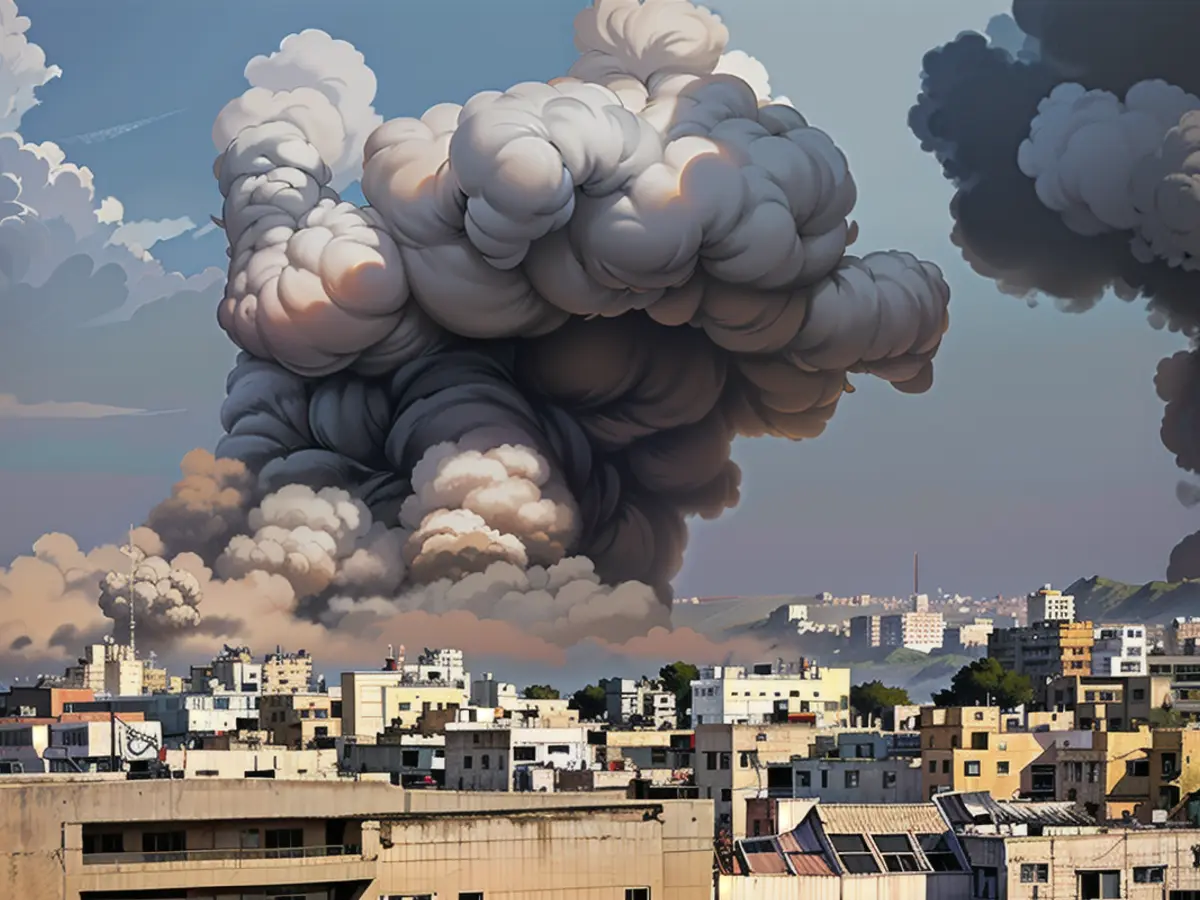Israel's reentry into zones previously deemed free of Hamas stirs uncertainty regarding its military approach.
Israel reinitiated ground operations on Saturday, accompanying these with heavy shelling and gunfire, concentrating on the Jabalya refugee camp in northern Gaza and the Zeitoun area in central Gaza. This action has extended its offensive to the eastern regions of Rafah and near the Rafah crossing with Egypt.
The decision to regain control of areas previously cleared raises doubts about the Israeli armed forces' approach, which has left more than 35,000 Palestinians deceased and Gaza almost destroyed, yet more than 100 Israeli hostages held captive, and the Hamas leadership still at large.
The intensified fighting, particularly in the north of Gaza, occurs as negotiations aimed at reaching a ceasefire-exchange agreement have halted. Additionally, the United States, a key Israeli ally in the Middle East, has conveyed its disapproval of the invasion and now appears less patient. Thus, US Secretary of State Antony Blinken emphasized in an interview with CBS News that Israel's strategy of seizing control of Rafah, which the US vehemently opposes, is not sustainable. Blinken highlighted Israel's ongoing failure to protect civilians and formulate a post-war agenda for Gaza.
"We're seeing parts of Gaza that Israel has cleared of Hamas only to have them return," remarked Blinken, warning that a ground offensive in Rafah could result in Israel "holding the bag on an enduring insurgency."
Should Israeli authorities choose to leave Gaza, a vacuum may develop, leading to anarchy and potential chaos. This scenario could also allow Hamas to reconsolidate its power.
Despite the American view, Israeli Prime Minister Benjamin Netanyahu remains adamant that his current military strategy, which aims at the complete annihilation of Hamas in Gaza, is the correct one, albeit disproved and unrealistic due to a lack of a long-term vision.
Danny Orbach, a military historian at the Hebrew University of Jerusalem, argues that this tactic of continuous deterioration of Hamas' capabilities while evading the responsibility of administrating Gaza is unsound.
Netanyahu frequently asserts that Israel will carry the "overall security responsibility" in Gaza following the war's conclusion. However, this stance opposes the stance of the United States, which has advocated for a reformed Palestinian Authority (PA) to oversee Gaza. The PA is a potential government for a future Palestinian state, including the West Bank, East Jerusalem, and Gaza based on the two-state solution to the Israeli-Palestinian conflict.
Netanyahu has yet to propose a post-war plan for Gaza. The US desires the implementation of a rehabilitated Palestinian Authority.
The US has recorded an estimated 14,000 Hamas fighters killed by Israel. Conversely, Israel estimated Gaza to house 30,000 armed Hamas fighters prior to October 7. CNN cannot independently confirm these figures due to the coverage limitations imposed on international media.
Members of the Israeli Defense Forces (IDF), including the IDF Chief of Staff and top military figures, have expressed unease with Israel's current war strategy.
IDF Chief of Staff Major General Herzi Halevi reportedly criticized Netanyahu's strategy, predicting that a continued need for operations against Hamas will lead to a Sisyphean task with seemingly impossible outcomes. Other military officers have urged the government to make decisions and determine an actionable plan to win the war against the militants.
A former head of military intelligence, Tamir Hayman, supports a deal that includes a ceasefire and cooperation with a reformed Palestinian Authority to maintain order in Gaza.
The INSS head in Tel Aviv argues that Israel could, instead, succumb to a constant war of attrition, characterized by ongoing clashes with neighbors. If the war stretches on, this could result in Gaza either being ruled by Hamas or left in a power vacuum, potentially creating a space for various armed groups to vie for power.
Nonetheless, some contend that reappearing Hamas "pockets" are not anomalous. Instead, they assert the necessity of the Israeli military persistently re-entering regions in Gaza to wipe out resistance groups.
"This process will keep happening until the pockets of resistance are completely removed," former deputy commander of the Gaza Division of Israel's military, Amir Aviv, told CNN.
In summary, intense Israeli-Palestinian clashes have continued, with the United States expressing its disappointment of Israel's pursuit of a permanent victory in Gaza. Undetermined future plans for the territory present uncertainties in the outcome.
Previously, the deputy commander thought it was feasible to eliminate Hamas. He commented, "(Gaza) isn't a never-ending area, it's not very large." Israel has now reached Rafah, the final refuge for Hamas, and they're now "with their backs against the wall."
Contributions from CNN's Abdul Qader Sabbah in Jabalya, Abeer Salman, Kareem Khadder, Tim Lister, Kevin Liptak, and Eugenia Yosef.

Read also:
- This will change in December
- Dikes withstand water masses so far - Scholz holds out the prospect of help
- Fireworks and parties ring in 2024 - turn of the year overshadowed by conflicts
- Attacks on ships in the Red Sea: shipping companies avoid important trade route
Israel's military operations in the Middle East have raised concerns about its approach in the world. The recent escalation in Gaza, with Israel focusing on areas like Rafah near the Rafah crossing with Egypt, has attracted criticism from the United States. Secretary of State Antony Blinken emphasized that Israel's continued strategy of seizing control of territories and failing to protect civilians is not sustainable and could result in an enduring insurgency.
Source: edition.cnn.com







